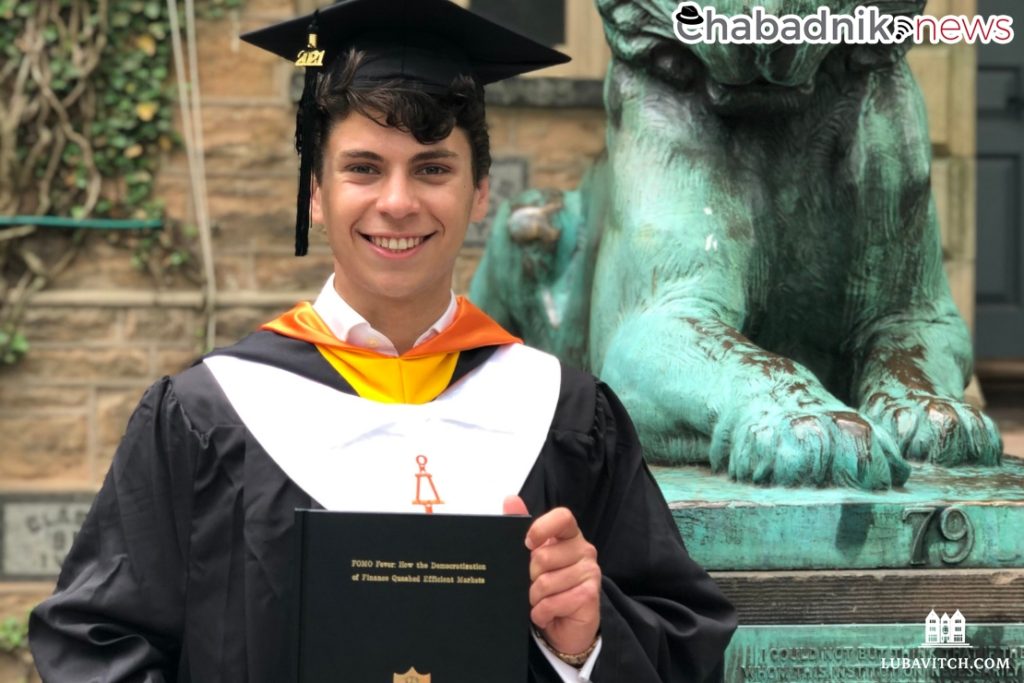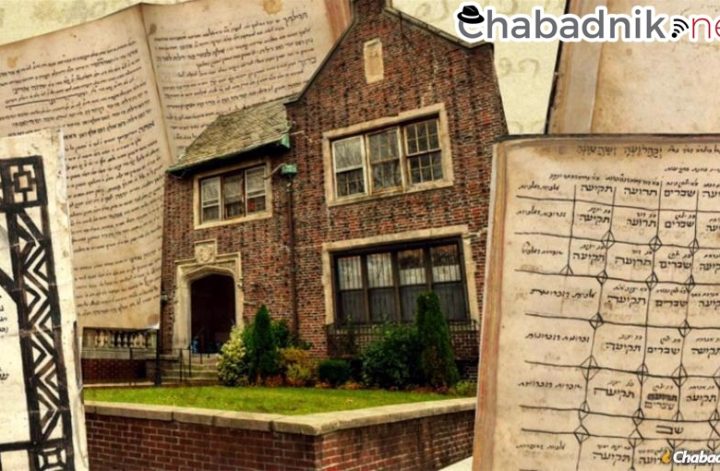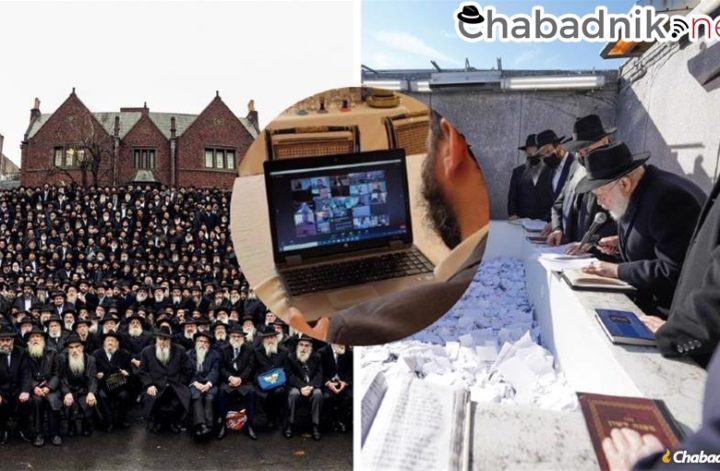Friday Night @Chabad on Campus
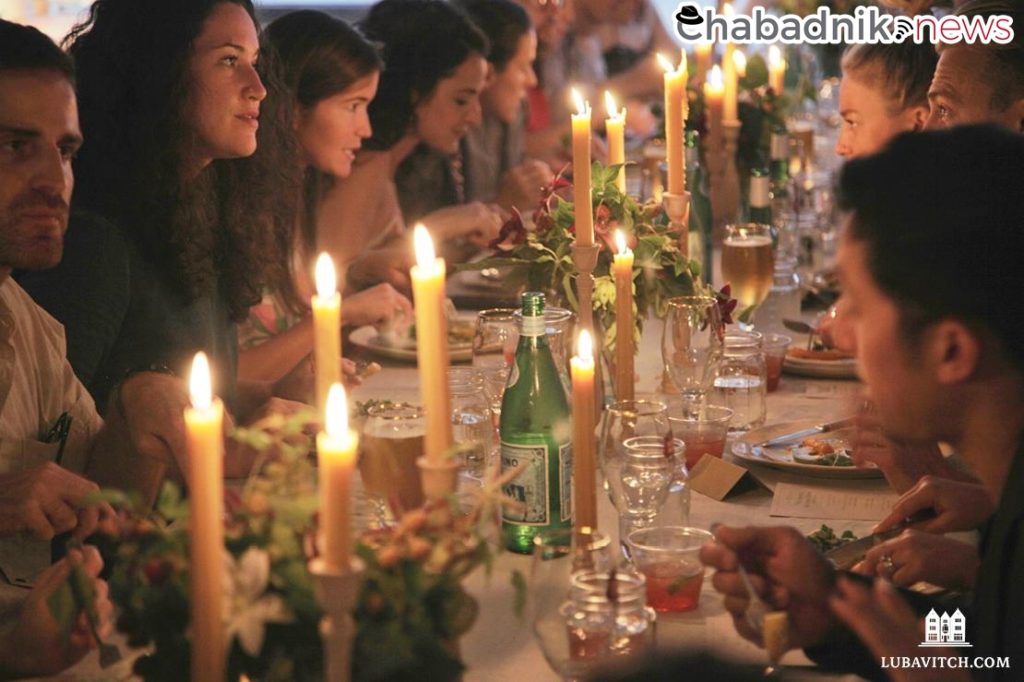
It’s more than a free home-cooked meal or a passing cultural experience. For many college students, Shabbat with their Chabad rabbi and rebbetzin is a source of connection and a gateway to other events and classes offered on campus. For some, it’s a steady date that anchors their weekend and enhances their entire week.
In their own words, four students share why they choose to claim their place at the table.
Forget All Your Troubles
I grew up in a pretty Jewish environment, attending a Reform synagogue and elementary school in San Francisco. I was definitely not looking to go to Chabad when I came to college. But a week into my freshman year — it was Sukkot, I think — I ended up at a Friday night dinner.
The next Friday morning, I was cooking for Shabbat with Miki. I’ve been back every week since. I had never been away from home before and Miki and Rabbi Chaim became like a second set of parents to me. Their home really quickly became mine too. Before Covid, we had hundreds for dinner every week. As an anthropology major hoping to travel the world and study global food culture, food is a big thing for me. We always make the staples, the challah, the special garlic and parsley pasta, the broccoli salad, and try out new dishes all the time. Food really makes the night special, but, of course, it’s so much more. Friday night dinner is laughter, amazing people, a very Jewish environment. It’s Shabbat and it’s also our only chance to feel real community here at school.
I now help both Hillel and Chabad on campus. We are a tight Jewish community and Chabad allows us to experience as much Judaism as we want. I first thought that Chabad was “too Jewy” for me. I let the stereotypes get the better of me. Now, I tell people, dip your toe in the water, give it a shot. No matter what kind of week you had, Friday night at Chabad is our own little world. Come and forget all your troubles.
Emma Tick-Raker
Junior, California Polytechnic State University
Chabad representatives: Rabbi Chaim Leib & Miki Hillel
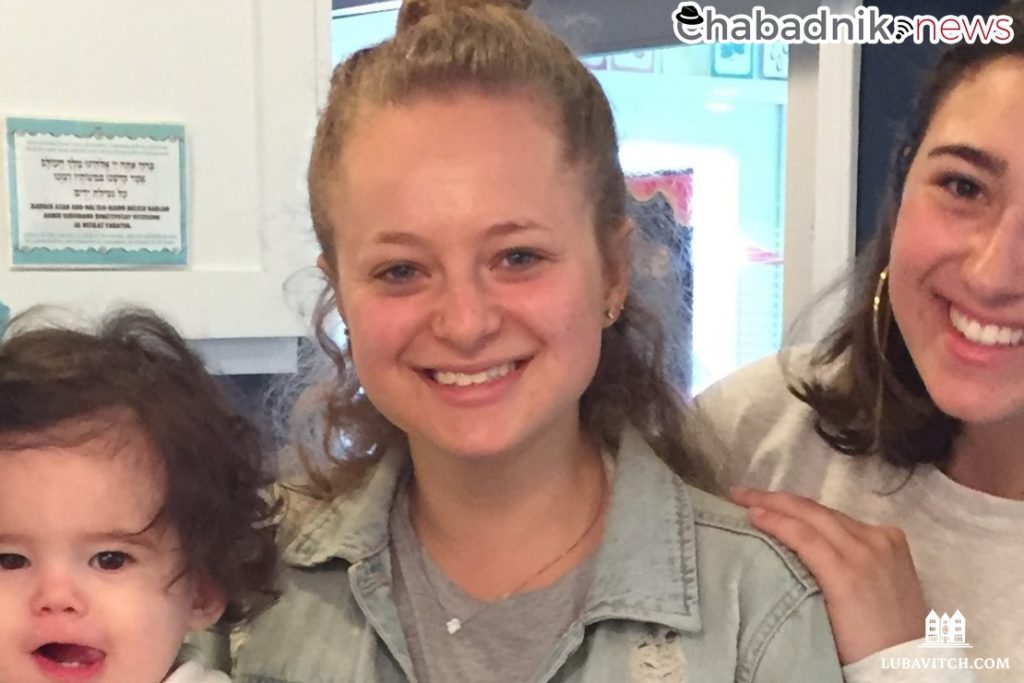
Not Another College Party
I remember the light glowing out of the house as I approached on a Friday night. Chabad at Stanford is located a bit off-campus, a beautiful house tucked away in a residential neighborhood. You walk through the cool California air and then you’re there. It’s obvious when you’ve arrived — there’s a buzz emanating, a high, positive energy coming out.
Rabbi Dov always shares a relevant Torah thought. He encourages us to not put aside our passions for study or work but to integrate Judaism into our daily lives.
The contrast between the serene, beautiful dinners and other Friday night alternatives on campus couldn’t be starker. I think the other students and I quickly realized we didn’t need to be anywhere else. This wasn’t just another college party. As I got older, I knew I wanted this to be a real, permanent part of my life.
Shabbat also gave us the chance to give back. Whether it was helping the rebbetzin, setting up an extra table, or going to a new student to help him feel comfortable, it turned us into givers. That’s important for young adults.
There is a considerable amount of anti-Israel hostility at Stanford. Rabbi Dov always supported us, helped us strategize. Friday nights were a chance to decompress against the craziness on campus. With him, we didn’t have to be “P.C.” He understood us.
Shabbat dinner at Chabad resonates so deeply in the life of a college student. Being invited to a family’s home, when you’re essentially all alone at college, is huge. But for me, it was more than that. I saw the wisdom he shared (and lived) each week about daily living and relationships. And because I got to know him at his comfortable, inviting Shabbat table, I realized he was the address for my big questions. I still go to him today with those questions. Friday night at Chabad was the first touchpoint of my journey.
Joseph Shayani
Graduated Stanford University in 2016; Postgraduate candidate at Massachusetts Institute of Technology
Chabad representatives: Rabbi Dov & Rachel Greenberg
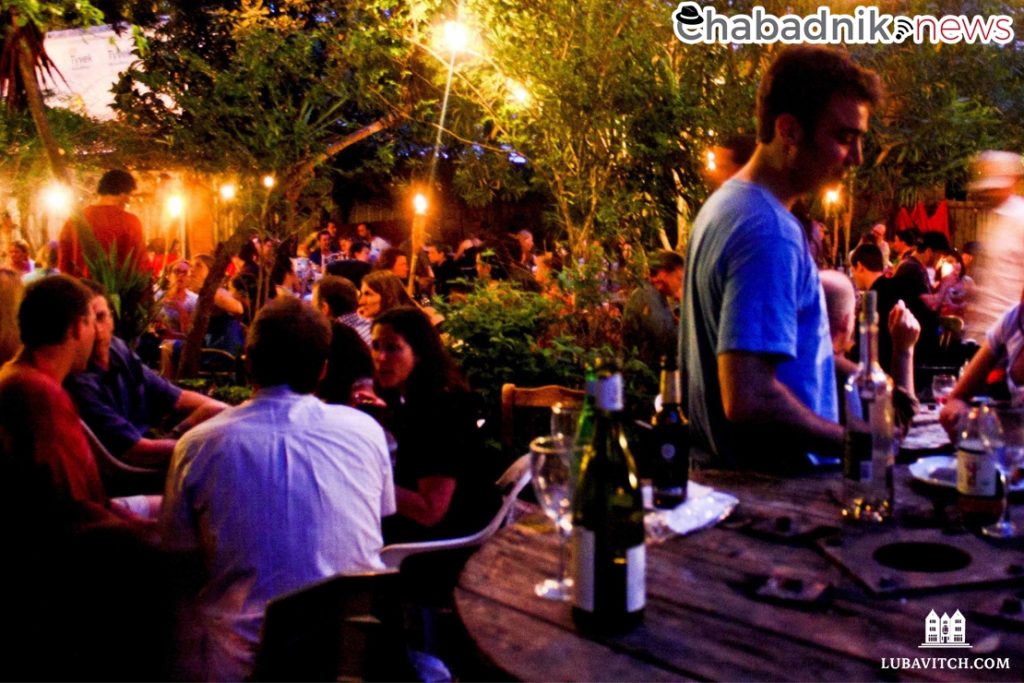
No Barrier to Entry
My first thought when the members of my fraternity invited me to come to Chabad for Friday night dinner was, “Free food, let’s do it!” I was a new freshman and eager to try out the different opportunities on campus. There was literally no barrier to entry; just show up and you’re treated like you’ve always been there, like you really belong. Sometimes you meet other Jewish members of your class with whom you wouldn’t have struck up a connection before getting to know them at Chabad. There’s always something relatable, whether it is involvement in your Jewish community growing up, talking about your bar mitzvah, or the classes you’re taking.
And then Covid came. And like everyone, we were stuck in our homes or dorm rooms seeing no one. Once the University allowed, Rabbi Mendy instituted a texting service whereby we could easily sign up for Shabbat dinners on our cell phones. They ran in four shifts, all Friday night, beginning at 5:30pm. Twenty people were allowed to join for each hour-long slot and the rabbi and his family repeated the food and Shabbat experience at each one. It was something to look forward to, it was community, it was a chance to see people again. It was a relief.
Now that I have been going for a couple years, I convince new friends and younger students to join too. And I make them come early, so we have even more time with the rabbi and his family.
Ryan Weinbach
Junior, University of Wisconsin at Madison
Chabad representatives: Rabbi Mendel & Henya Matusof
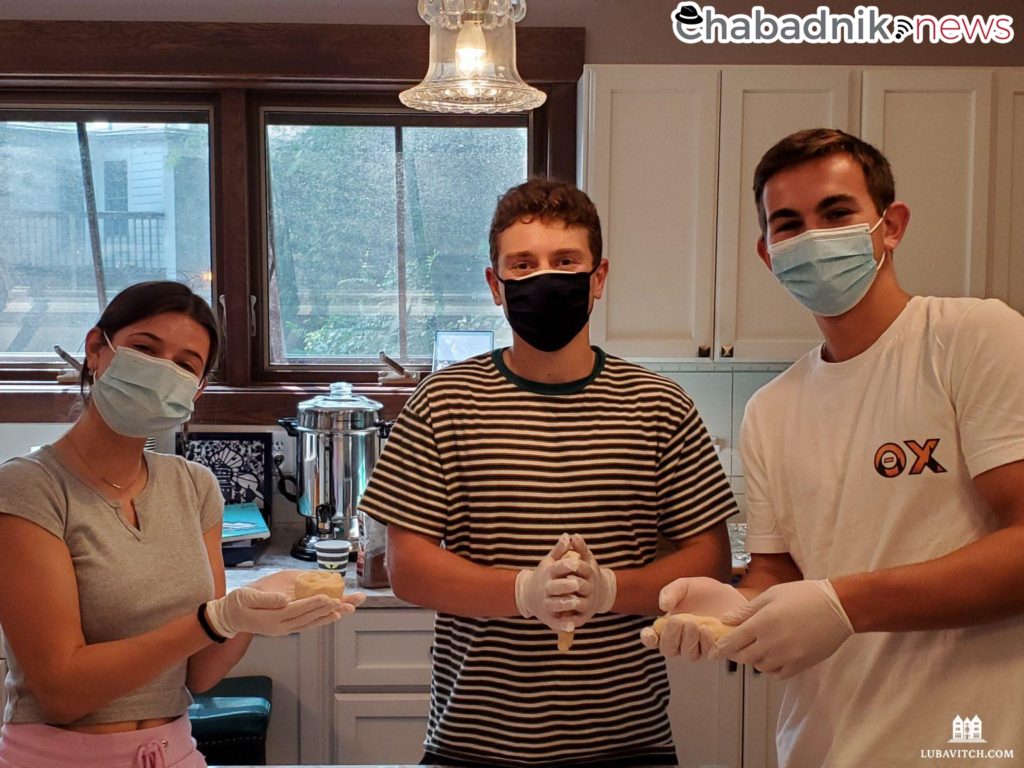
In the Big Tent
My parents and grandparents immigrated from the former Soviet Union in 1992. It was very hard to practice religion there and, while they raised me with a strong Jewish identity, there was no actual practice in our family.
I knew that there was Chabad at Princeton before I came and I knew that I wanted some kind of Jewish involvement during my college years. One of the first Friday nights on campus, I went to Chabad for Shabbat dinner. There were probably sixty students there. We were all in a big tent outside. It was packed, it was homey, it was very family-oriented. I made some of my best friends there that night.
I realized over those first few weeks that people didn’t just sit with their cliques and stick together. We were always meeting new people and having great conversations. Of course that changed with Covid. When the University allowed, we offered limited seating on Friday nights. Registration opened each week on Tuesday at 5:30. There were less than thirty seconds to sign up before the two seatings were full. It was unfortunate that not everyone made it in. We worked so hard to make sure as many people could attend as possible. It was the best we could do at the time.
The fact that Shabbat is central to Judaism got me to explore other areas of Judaism. I quickly began attending the classes and events that Chabad offered and I have been on the Board since I was a freshman. That first year, I went every other Friday night. When I was a sophomore, I attended three out of four Shabbats a month. I spent Shabbat with Chabad every Friday night in my junior and senior years. This past year especially, I began to feel that Shabbat started and ended my week and it’s really so impactful in all areas of my life. I have brought some of those experiences home and we now observe some Shabbat traditions.
My parents get so much joy seeing me so involved. When she was in first grade, my mother was told by a classmate, “You’re smart and nice, but I can’t be your friend because my parents told me you’re Jewish.” Another of her acquaintances was bullied in school for holding his grandpa’s hand on the way to synagogue. I’ve brought my parents to Shabbat dinners at Chabad at Princeton over the years, and they love that I can freely explore my Jewish identity at school.
Dan Gitelman
Graduated, Princeton University, 2021
Chabad representatives: Rabbi Eitan & Gitty Webb
